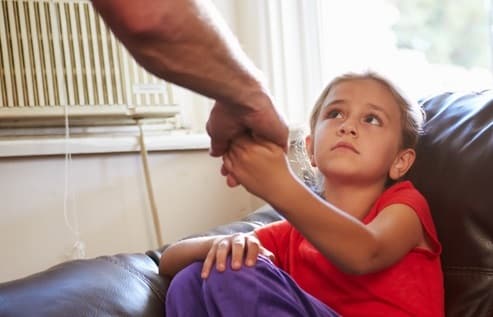There has been a 22% rise in the number of child cruelty offences recorded by the police in England and Wales between 2019-2020 and 2020-2021.
The NSPCC has revealed that between January and September 2021 there was a 22% increase in child cruelty offences recorded by police and are urging the government to strengthen the child protection system to reduce child cruelty crimes.
Anna Edmundson, NSPCC Head of Policy and Public Affairs, said: “The entire country was shocked and saddened by the horrific deaths of Arthur Labinjo- Hughes, Star Hobson and Amina-Faye Johnson which led to calls to prioritise child protection.
“But at a time when the government could be showing national leadership when it comes to safeguarding, child protection guidance is glaringly absent from big changes to the system that will result from the Health and Care Bill.
“It’s crucial the importance of health services’ role in identifying and preventing child abuse before tragedies occur is recognised in legislation and backed up with investment for a fragmented and woefully underfunded child protection system.”
The children’s charity believes the current Health and Care Bill could put children at higher risk of abuse. The NSPCC says that in its current form, the Bill will put children in danger due to proposed changes to NHS structures which could destabilise multi-agency safeguarding partnerships by disrupting working relationships, resulting in a loss of experienced staff.
Better leadership and information sharing in multi-agency safeguarding partnerships has been urged in recent reports from child safeguarding experts, including Sir Alan Wood, in a bid to strengthen the local response to abuse.
Multi-agency safeguarding partnerships are led by health bodies, local authorities and the police and engage with education leaders and other organisations that do vital work to protect children from harm.
GPs, nurses and health visitors are in a prime position to identify safeguarding concerns and are often the only eyes and ears in the community that can spot signs of abuse before young children go to school.
The NSPCC fears the changes to the NHS could further weaken safeguarding partnerships that already need urgent improvement. The Health and Care Bill will scrap existing Clinical Commissioning Groups (CCGs) and create Integrated Care Boards (ICBs) which will be legally responsible for safeguarding children across large geographical areas.
The children’s charity wants to see an amendment to the Bill to send a clear message that ICBs must prioritise their legal duty to safeguard children.
“We want to see government accountability for the safe transition of child protection responsibilities and legislation that strengthens health professionals’ leading role in multi-agency safeguarding partnerships,” said the charity.
The NSPCC is also calling on the government to adopt the recommendations made by Sir Alan Wood to improve multi-agency safeguarding partnerships and enact a swift cross-departmental response to the national review into the deaths of Arthur Labinjo-Hughes and Star Hobson.
As part of the Children’s Services Funding Alliance, the NSPCC has been urging ministers to address the funding shortfall in children’s services. The charity is also campaigning for action to resolve the national shortage of 5,000 health visitors who are responsible for safeguarding young children.
The latest figures from the NSPCC’s helpline show:
• During the first year of the pandemic the charity contacted agencies about an average of 25 children aged 5 and under a day to investigate physical abuse and neglect.
• During 2020/21 the NSPCC contacted agencies, including statutory safeguarding partners, about more than 9,400 young children with worries about physical abuse and neglect – up almost 10% on the previous year.
• In total nearly half of all our referrals related to child cruelty were made about children aged 5 and under, highlighting the risk they face before coming into regular contact with professionals at school.
A grandparent who contacted our helpline during the pandemic about their 4, 5 and 7-year-old grandchildren said: “The youngest described an incident where he was assaulted by his mother’s boyfriend in front of her because he'd done something to upset her. He was in so much pain and was very scared.
“All of them have told me they don’t like to be left alone with their mother’s boyfriend because they’re scared of what he'll do to them and he regularly threatens them.”
Baroness Claire Tyler, co-chair of the all-party parliamentary group for children, said: “Following recent horrific cases of child abuse and neglect leading to the tragedy of child deaths, the Health and Care Bill, currently making its passage through the Lords, provides a golden opportunity for the government to strengthen the health sector’s leading role in multi-agency safeguarding arrangements.
“Given the gravity of the safeguarding responsibilities being transferred to Integrated Care Boards, I urge the government to ensure children’s safety is a priority for this Bill. By supporting agencies to work together effectively and share information, further heart-breaking cases of child abuse and neglect could be avoided,” she concluded.



